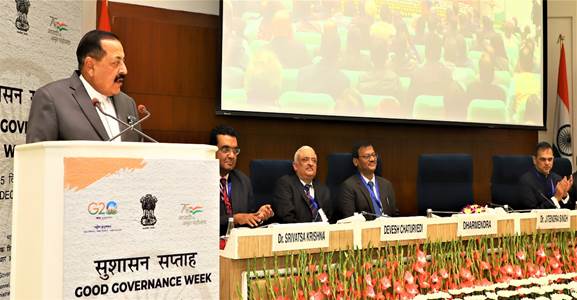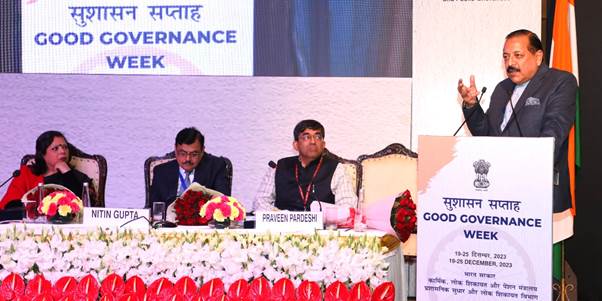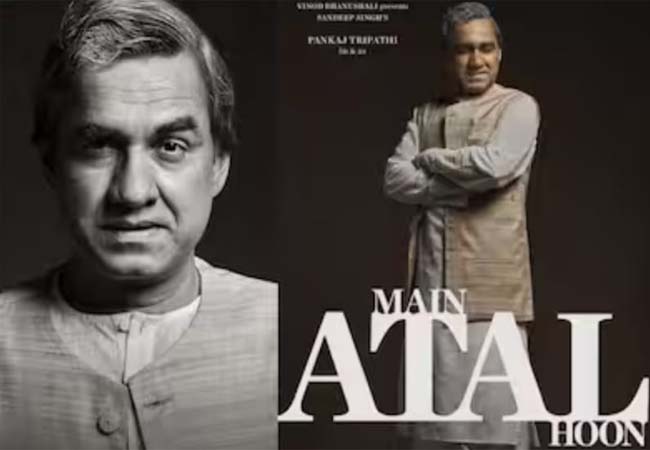In a recent address to Sri Lankan civil servants, India’s Union Minister Dr. Jitendra Singh unveiled a captivating narrative – a tapestry woven with the threads of governance reforms, their tangible impact on the nation, and their growing influence on the global stage. Stepping beyond mere procedural changes, Dr. Singh meticulously painted a picture where economic savings, improved service delivery, enhanced transparency, and social welfare initiatives intertwined, showcasing the holistic progress achieved under Prime Minister Narendra Modi’s leadership.
 Dr Singh placed financial prudence at the forefront, highlighting transformative initiatives like Direct Benefit Transfer (DBT). This ingenious system not only saved a staggering Rs. 1 lakh crore by eliminating corrupt middlemen but also ensured that vital benefits reached their intended beneficiaries, even during the tumultuous pandemic. He further presented the Government e-Marketplace (GeM) as another cornerstone of financial gain, generating Rs. 65,000 crores in savings through transparent and efficient procurement practices.
Dr Singh placed financial prudence at the forefront, highlighting transformative initiatives like Direct Benefit Transfer (DBT). This ingenious system not only saved a staggering Rs. 1 lakh crore by eliminating corrupt middlemen but also ensured that vital benefits reached their intended beneficiaries, even during the tumultuous pandemic. He further presented the Government e-Marketplace (GeM) as another cornerstone of financial gain, generating Rs. 65,000 crores in savings through transparent and efficient procurement practices.
However, Dr Singh’s narrative transcended mere financial metrics. He delved deeper, unveiling how these reforms have fostered a culture of transparency and accountability, central tenets of “Minimum Government, Maximum Governance” envisioned by Prime Minister Modi. Technology emerged as a powerful ally, with initiatives like e-filing, online grievance redressal, and digital payments empowering citizens and holding officials accountable. Dr Singh further underscored the government’s unwavering commitment to tackling corruption, highlighting the recent amendment to the Prevention of Corruption Act as a testament to this resolve.
The address wasn’t just about numbers and systems. Dr. Singh wove social welfare into the tapestry, showcasing how reforms have touched the lives of ordinary citizens. He mentioned women-centric programs like expanded maternity leave as demonstrations of the government’s commitment to social justice. The introduction of Face Recognition Technology in pension disbursements exemplified an innovative solution, ensuring uninterrupted delivery to genuine beneficiaries while minimizing fraud. Dr. Singh also lauded the success of CPGRAMS, India’s world-leading grievance redressal mechanism boasting a resolution rate exceeding 95%. This emphasis on inclusivity and citizen empowerment added a human touch to the narrative of reform.
Dr Singh’s address didn’t conclude within the borders of India. He acknowledged the global impact of India’s governance reforms, citing instances where other countries, like South Africa and the United Kingdom, have drawn inspiration and adopted successful Indian practices like DBT and GeM. He pointed to the National Centre for Good Governance (NCGG) as a key institution actively involved in sharing best practices through capacity-building programs for international civil servants. This emphasis on knowledge sharing and global collaboration positioned India as a leader in the realm of good governance, willing to contribute to the collective progress of nations




